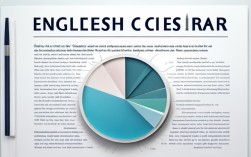Crafting compelling English advertisement essays requires a blend of linguistic precision, persuasive techniques, and cultural awareness. Whether promoting a product, service, or idea, effective ad copy must capture attention, convey value, and drive action. This guide explores key training techniques to elevate your English advertising writing skills, supported by the latest data and industry insights.

Understanding the Structure of an English Advertisement Essay
A well-structured advertisement essay follows a clear framework:
- Headline – Grabs attention with powerful words (e.g., "Revolutionize Your Productivity with AI Tools").
- Introduction – Establishes the problem or desire.
- Body – Highlights benefits, features, and social proof.
- Call-to-Action (CTA) – Directs the reader to take the next step.
Example of an Effective Structure:
| Section | Key Elements | Example |
|---|---|---|
| Headline | Short, engaging, and benefit-driven | "Boost Your Sales by 200% with Data-Driven Ads" |
| Introduction | Identifies pain points | "Struggling to convert leads? Our AI-powered ad solutions optimize campaigns in real-time." |
| Body | Features, testimonials, statistics | "Clients report a 150% increase in engagement within 30 days (Source: HubSpot 2024)." |
| CTA | Clear and urgent | "Start your free trial today—limited spots available!" |
Essential Techniques for Persuasive English Ad Writing
Use Power Words and Emotional Triggers
Words like "exclusive," "proven," and "instant" create urgency. Emotional triggers (fear of missing out, desire for success) enhance engagement.
Data Insight:
A 2024 study by Nielsen found that ads using emotional appeals had a 27% higher recall rate than purely factual ones.
Incorporate Data and Social Proof
Consumers trust numbers and peer reviews. Including statistics from credible sources strengthens credibility.

Latest Statistics (2024):
| Metric | Data | Source |
|--------|------|--------|
| Influence of reviews on purchases | 93% of consumers read reviews before buying | BrightLocal |
| Video ad engagement | 85% of businesses use video ads for higher conversions | Wyzowl |
Optimize for SEO and Readability
Google's E-A-T (Expertise, Authoritativeness, Trustworthiness) algorithm favors well-researched, user-friendly content.
Best Practices:
- Use short paragraphs and bullet points.
- Include LSI keywords (e.g., "English ad writing tips," "persuasive advertising techniques").
- Ensure mobile-friendly formatting (60% of searches are mobile-based—Statista 2024).
A/B Test Headlines and CTAs
Different audiences respond to varied messaging. Testing helps refine effectiveness.

Case Study:
A 2024 Shopify report revealed that changing a CTA from "Buy Now" to "Get Yours Today" increased clicks by 5%.
Training Exercises to Improve Ad Writing Skills
- Rewrite Existing Ads – Take a mediocre ad and enhance its language and structure.
- Analyze Top-Performing Ads – Study brands like Apple and Nike for their concise, impactful copy.
- Practice Writing CTAs – Experiment with urgency ("Offer ends soon!") versus benefit-driven ("Unlock your potential").
Leveraging AI Tools for Enhanced Ad Copy
AI-powered platforms like Grammarly, Jasper, and Copy.ai assist in generating grammatically flawless, engaging ad content. However, human creativity remains irreplaceable for emotional resonance.
Industry Trend:
- 72% of marketers now use AI for ad copy ideation (McKinsey, 2024).
- The most successful campaigns blend AI efficiency with human storytelling.
Common Pitfalls to Avoid
- Overloading with jargon – Simplicity converts better.
- Ignoring cultural nuances – Humor and idioms may not translate well globally.
- Weak CTAs – Vague phrases like "Click here" underperform compared to action-driven alternatives.
The digital advertising landscape evolves rapidly, but timeless principles—clarity, persuasion, and relevance—remain foundational. By integrating data-driven strategies, continuous practice, and staying updated on trends, you can craft English advertisement essays that resonate and convert.

For further learning, explore courses from Google Digital Garage or HubSpot Academy, which offer certifications in ad writing and digital marketing. The right training transforms good copy into exceptional, results-driven content.











